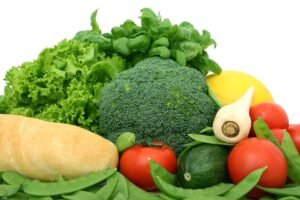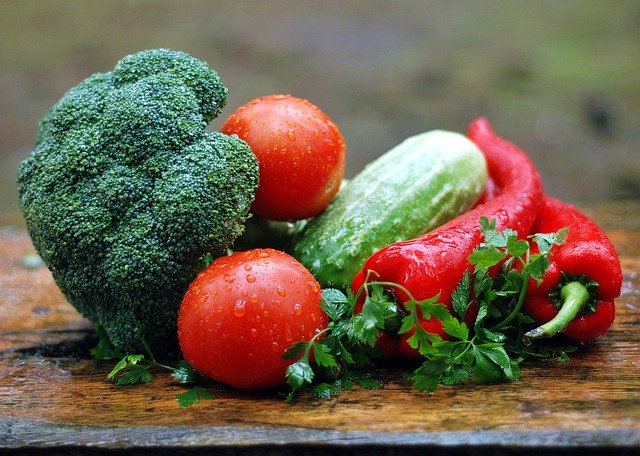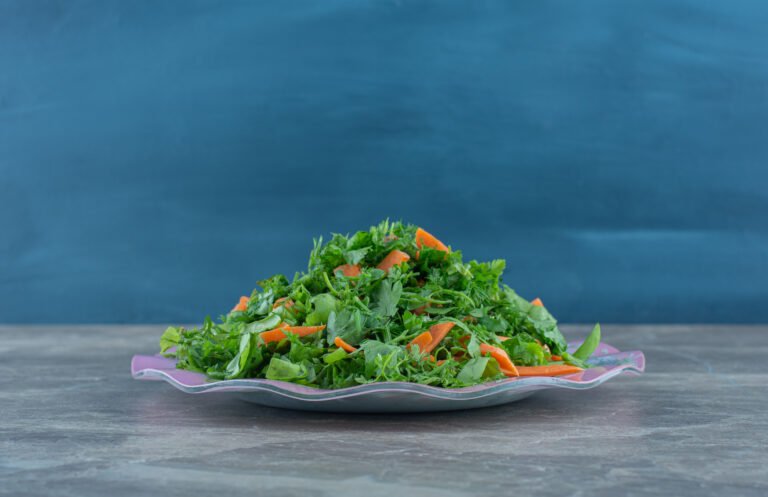How Vegetable Food Group Supports Weight Loss and Over Well-being
Overcome challenges in eating Vegetable Food Group with practical results, trying new tricks, add flavors to keep refashion instigative.
Vegetable Food Group:
The vegetables food group nutritional category incorporates dim green vegetables, red and orange vegetables, solid vegetables, and legumes(beans and peas). Green vegetable food group include broccoli, collard greens, spinach, and kale. Vegetables are plentiful in fiber, minerals, and nutrients. They keep your body sound, help your weak framework, and diminish your intention to foster diabetes, heat protests, and a few sorts of malignant growths. Additionally, low-calorie vegetables aid with weight management. Consuming various veggies gives the body the nutrients it needs to stay well.

Variety of Vegetables in the Food Groups:
There are colorful kinds of vegetables and food group and each has health advantages:
- Veggies: Like lettuce, kale, and spinach, they are plentiful in minerals and nutrients.
- Root vegetables: Similar to potatoes, beets, and carrots.
- Anti-oxidants: Similar to broccoli, cauliflower, and cabbage, aid in forestallment of complaint.
- Legumes: High in factory-grounded protein are sap and peas.
- Gist vegetables: Cucumbers have a high water content and few calories.
Supplements are given by eating different veggies, which work on your wellbeing. If you are not tired yet then must try out Zesty Lemon Herb Dip, eggplant recipe and Golgappa pani.
Advantages of the Vegetable Nutrition class:
Vegetables food group is a piece of a strong eating routine since they’ve lots of critical enhancement. They’re stacked with supplements, minerals, and fiber and are low in fat and calories. Eating vegetables can help with weight control, cut down the risk of conditions, and work on your overall prosperity.
Nutrients and Minerals in Vegetables:
Vegetables and food group contain significant Nutrients and Minerals which are as follow:
- Vitamin A: Set up in carrots, spinach, and sweet potatoes which helps with eye health and skin.
- Vitamin C: Set up in bell peppers, broccoli, and tomatoes which boosts your vulnerable system and keeps your skin healthy.
- Potassium: Set up in potatoes, spinach, and beans which helps control blood pressure.
- Folate: Develop in lush flora like spinach and kale, which is important for healthy cells and pregnant women.
Vegetables Help Your Immune System and Digestion:
Vegetables food group help your vulnerable system stronger with antioxidants that cover the body from detriment. The fiber in vegetables supports digestion by keeping the effect moving easily and precluding kink. Fiber-rich, like carrots and spam, also ameliorate health and lower the threat of digestive problems.
Diurnal Input of Vegetables:
Vegetables are vital for a solid eating routine. It’s good for everyone to eat a certain quantum. Every day to stay healthy. The amount you ought to eat depends upon your age, orientation, and how dynamic you are. Most extreme adults ought to attempt to eat 2 to 3 cups of vegetables every day. Eating various kinds of vegetables assists you with getting every one of the supplements your body needs.
How Numerous Vegetables Eat for Optimal Health:
For stylish health, include a variety of vegetables food group in your reflections. Adults ought to go for the gold 3 mugs daily, while youngsters and adolescents ought to eat 1 to 2.5 cups, depending on their age. Eating various assortments of vegetables like salad greens, root veggies, and beans ensures you get every one of the nutrients, minerals, and filaments that are good for your health.
Serving Sizes and Portions for Vegetables Food Groups:
A mug of vegetables can look different based on the type of vegetables. Here are some serving sizes:
Eating these serving sizes throughout the day helps you meet your diurnal vegetables and food group preferences and ameliorates your health.
Challenges for Eating Further Vegetables:
- Tedium: People frequently eat the same vegetables, which can make them lose interest in eating further.
- Time to Prepare: Preparing vegetable food group takes a lot of time, which makes people less likely to include them in their reactions.
- Cost: Fresh Vegetable Food Groups are precious, especially when they’re out of season or organic.
- Changing them: In some places, it’s hard to find fresh and cheap vegetables and food groups.
- Taste preferences: Some people don’t like the taste of certain vegetable food groups, which stops them from eating further.
Results for Eating Further Vegetables:
- Try New Veggies: Trial with different types of Vegetable Food Group and food group cuisine styles to keep reflections fun. This helps you find new pets. You must try out Asian salad
- Prep Ahead: Get vegetables and food groups ready ahead of time by washing, mincing, and storing them in the fridge. This makes it easier to add them to reactions during the week.
- Visit Original Request: Check out planter’s requests or community gangers for fresher and frequently cheaper vegetables and food group.
- Add Flavor: Use spices, flavors, and solid sauces to make vegetables taste better, so they are more enjoyable to eat.
Conclusion:
Eating various vegetables food groups consistently is significant for good health. They give your body nutrients, minerals, and fiber while being low in calories. Vegetables can assist with forestalling infections like heart issues and diabetes, help your vulnerable system, and improve digestion. Attempt to eat 2 to 3 mugs of vegetables daily, contingent on your age and movement.
FAQs:
Why are vegetables important?
Vegetables are important because they contain antioxidants and phytochemicals as well as plant chemicals
How many servings of vegetables can you eat per day?
You can take 2 and a half servings of vegetables per day.
Why is it important to eat vegetables?
They are important because they contain essential vitamins and all nutrients in it.
What is the most favorite vegetable?
Tomatoes are the vegetables which is beloved all over the world.








